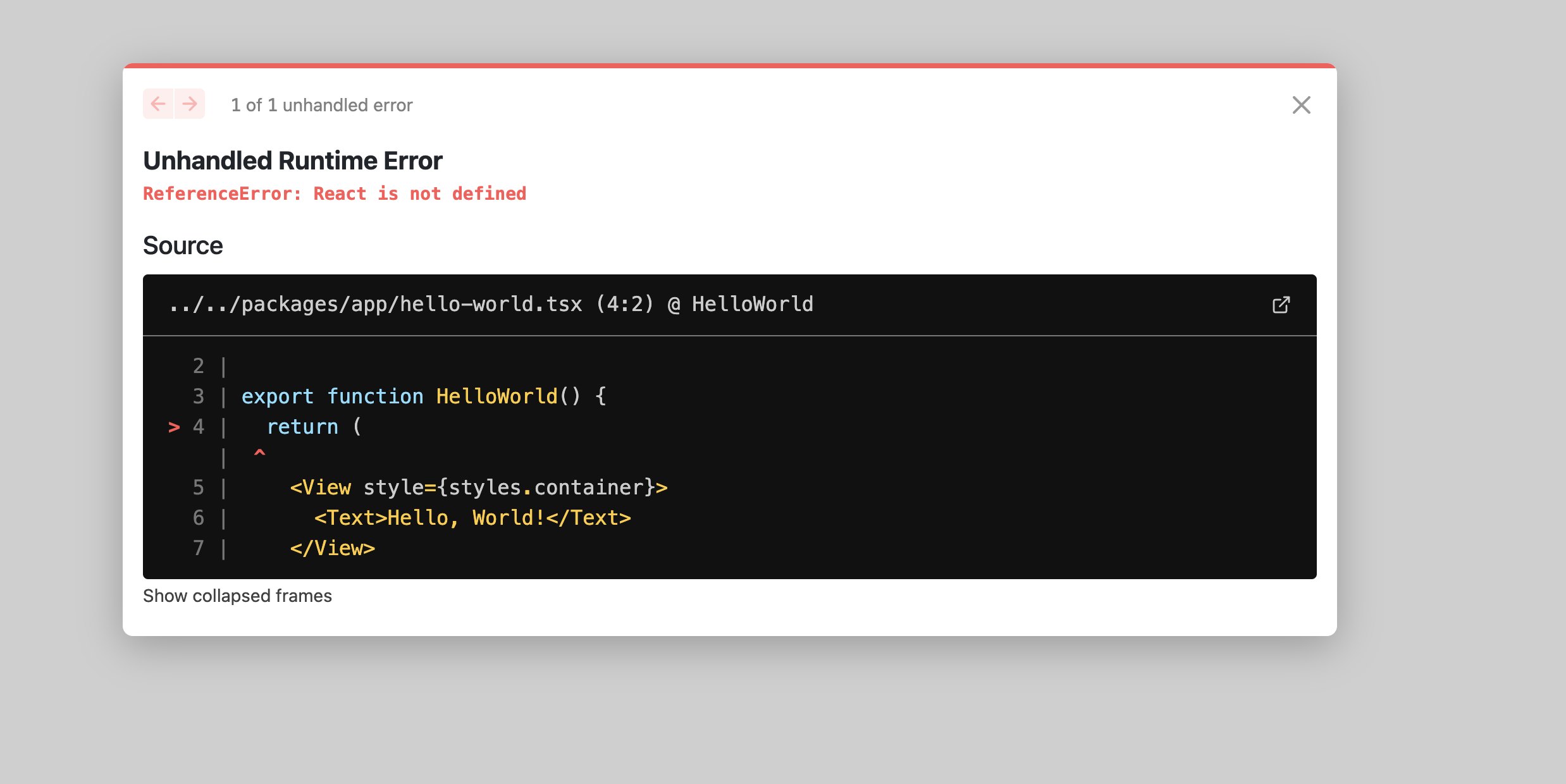I have a cool example of shallow routing. It works great with a react navigation stack.
Say you have a stack with these screens:
artists → /artistsartist → /artists/:slug
When you're visiting either Next.js page, you're rendering the same stack.
The code looks like this:
// pages/artists/[slug] & pages/artists use the same component here
export default function ArtistPage() {
return (
<NativeStack.Navigator screenOptions={screenOptions}>
<NativeStack.Screen
name="artist"
component={ArtistScreen}
getId={({ params }) => params?.slug}
/>
<NativeStack.Screen
name="artists"
component={ArtistsScreen}
/>
</NativeStack.Navigator>
)
}A typical way to route from /artists → artists/:slug would be to do something like this:
router.push('/artists/drake')However, this misses out on amazing Next.js feature: shallow routing.
Since every Next.js page is a React Navigation stack in this paradigm, we can take advantage of Next.js shallow routing out of the box. In fact, this is better than normal Next.js routing. It's amazing.
Dynamic example
Say were on the artists page at the URL /artists.
First, static code
To open an artist with shallow routing, we can do this:
router.push('/artists?slug=drake', '/artists/drake', { shallow: true })And there we have it! That's literally all we have to do. Now, React Navigation will navigate on the client-side only, using the asPath set by /artists/drake.
Next, a dynamic example
Okay, but can we do better? Writing the href argument as /artists?slug=drake is a bit annoying. For example, what if our component doesn't know which screen it's navigating from?
Rather than hard code the first path, we can dynamically generate the href:
import Router from 'next/router'
// ...
const openArtist = () => {
const as = '/artists/drake'
let href = Router.router && {
pathname: Router.pathname,
query: { ...Router.query, slug: 'drake' }
}
href = href || as
router.push(href, as, { shallow: true })
}Okay, so what happened here?
Well, first we make sure that Router exists. If it doesn't, that means we're on native – in which case, we don't care about shallow routing, so we fall back to the actual URL.
Next, if Router exists, we just need to tell Next.js that we want to stay on the same URL we're already on, so we set the href.pathname = Router.pathname.
Finally, we set the query equal to the current query + any new query parameters we want our screen(s) to access { ...Router.query, slug: 'drake' }.
And there we have it. We've now navigated from the artists screen to artist, cross-platform, using shallow routing. If you go back, your scroll position is preserved, components aren't unmounted, giving users a great UX. In fact, I think this navigation pattern is better than typical Next router, since we can use it on like every page!
Looking forward
There are plans to create documentation from issues like this one, but I'm writing this here so that people along the way can get a sense of different patterns we're working on.






